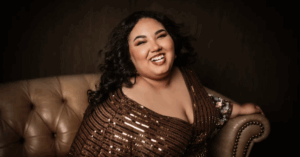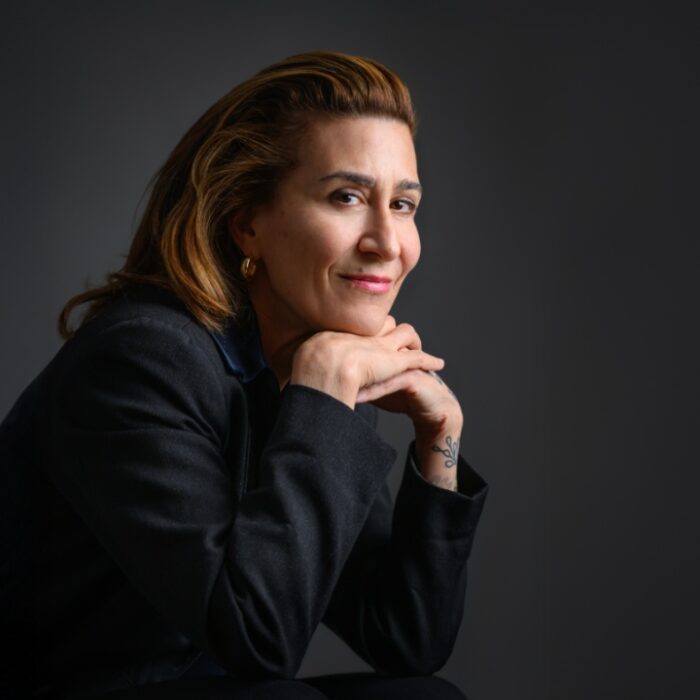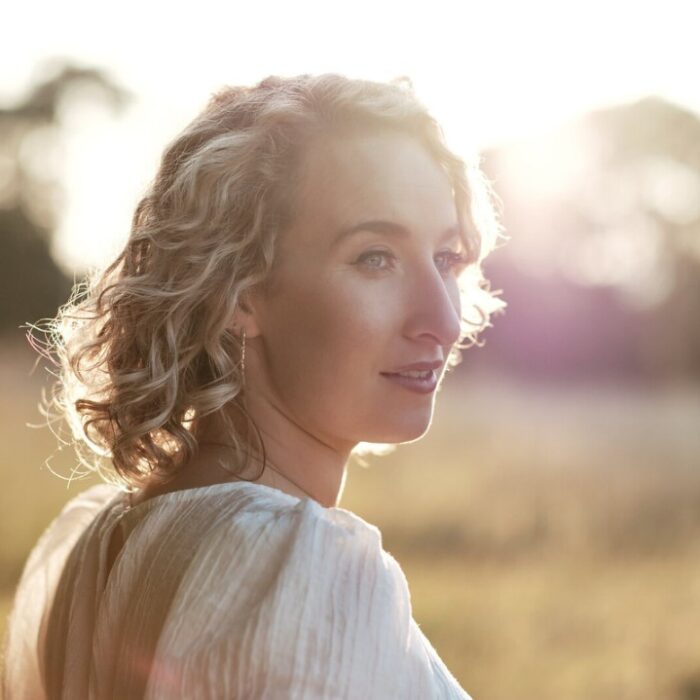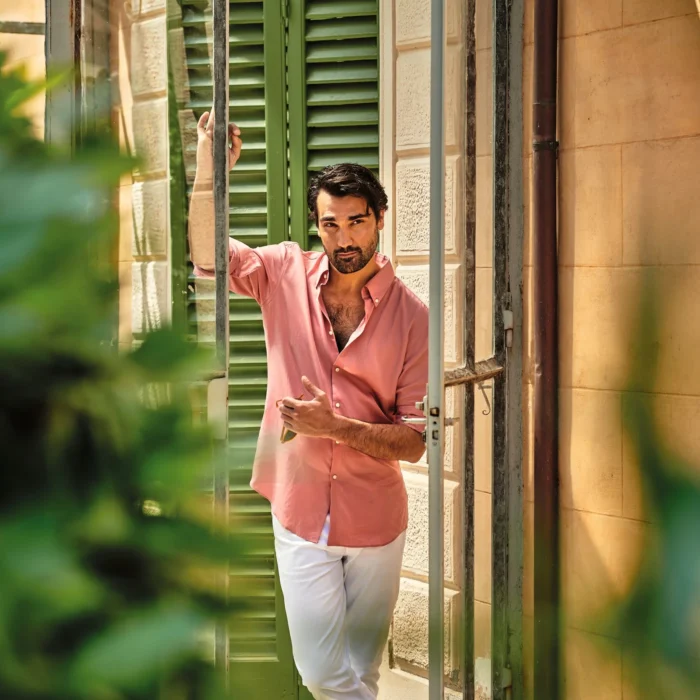
Q & A: Katerina Burton, the Soprano Soloist for the Cathedral Choral Society’s Performance of Mozart’s Requiem at National Cathedral, Washington, DC
By Arnold Saltzman(Photo credit: Gillian Riesen)
When she was a child, Katerina Burton remembered her mother, a competitive figure skater, working to opera.
“I loved watching her and other professionals skate to music from ‘Carmen,’ ‘Tosca,’ ‘Tristan und Isolde,’ etc…and I really just fell in love with the music and the storytelling,” Burton told OperaWire in a recent interview.
That was the beginning of her operatic journey, but it would get another push from her grandmother, who was excited to play a cassette for her of “Phantom of the Opera.” Burton latched onto the cassette, learned it, and sang to it in the car on the way to school. Her grandmother who recognized Burton’s vocal talent immediately sought a voice teacher for her seven-year-old granddaughter and the rest is history.
Burton, a graduate of the Cafritz Young Artist program at Washington National Opera, recently made her stage debut with the Washington National Opera when she was asked to step into the role of Micaäla in Francesca Zambello’s production of “Carmen.” She is also a grant recipient from the Richard Tucker Foundation, and has appeared with Lyric Opera of Kansas City, Opera Theater of St. Louis, Madison Opera, and is set for performances with Cathedral Choral Society on Oct. 19.
What follows is the conversation Burton had with OperaWire.
OperaWire: Which singer(s) inspire you? Who do you admire most?
Katerina Burton: Goodness, there are way too many singers to mention that have had such an impact on me and my artistry. Off the top of my head (and likely very much influenced by the repertoire I’ve been working on lately) I’d have to say Shirley Verrett, Jessye Norman, and Montserrat Caballé. These particular sopranos just tend to melt my heart with every nuanced vocal line and dramatic decision!
OW: Why did you choose to sing opera? How did that come about?
KB: My path to opera was a bit unusual! I was exposed to many different genres of music as a child because of my Mom, who for many years was a competitive figure skater. I loved watching her and other professionals skate to music from “Carmen,” “Tosca,” “Tristan und Isolde,” etc…and I really just fell in love with the music and the storytelling. I distinctly remember the real turning point was my grandmother coming back from a trip to NYC toting a cassette tape of the musical “Phantom of the Opera.” She’d play it in the car on our way to school, and one day I started singing along to “The Music of the Night.” My grandmother was so impressed that she immediately started looking for a private teacher, and I ended up in voice lessons by the age of seven! It wouldn’t be until many years later, however, that I’d see my first live opera. I was in college at Towson University, and I’d heard that another Towson alumna (Corinne Winters) was singing the lead role of Mimì in “La bohème” at Washington National Opera. It was such a magical experience, and I do believe it just solidified in my heart that this was what I wanted to do with my life.
OW: You are unusual in that you sing Verdi and Mozart. I listened to your recording of “Simon Boccanegra” and was impressed with the beauty and evenness of your tone and delivery. Do you feel it is right for your voice at this point in your career?
KB: I’ll admit that I feel very at home with both Verdi and Mozart repertoire, but I think the key here is that I’m very selective when approaching particular works from each composer’s vast catalogue. I think the roles that I’ve performed/prepared from Verdi thus far (Alice Ford, Elvira, Amelia, Violetta) all have, at the very least, elements of the bel canto era which allows me to be expressive without fear of pushing the limits of my instrument. I think these Verdi roles are perfect for me, and I do have hopes of singing more of his later works in a few years.
OW: Also, the ‘Air de Lia’ by Debussy was quite beautiful. Do you think that art song is a great step towards singing opera? How?
KB: I’m so glad to hear you enjoyed the Debussy! I’ve always had a special affinity for his works, so years ago when a voice teacher brought ‘L’enfant prodigue’ to my attention, I was thrilled! It’s actually closer to an aria, and I only mention this because having sung a good deal of Debussy art songs I do feel that ‘Air de Lia’ is quite a departure from his song catalogue in terms of vocal demand. The cantata is rarely done in its entirety, but I do think this aria in particular tends to be a great vehicle for many a full lyric soprano.
OW: What is the range of roles you currently sing? Any favorites?
KB: I’m mostly singing lyric soprano roles at this time, and I just love this repertoire. A lot of Mozart, Verdi, Puccini…I always seem to come back to Puccini. I just debuted my first Mimì in “La bohème” at Opera Theatre of Saint Louis last summer which really was a dream come true, and my first lead role as a student was Suor Angelica, which has always held a special place in my heart. I’d love a chance to do Puccini’s “Il trittico” in the near future.
OW: Dream role?
KB: In all honesty, I think my answer to this changes on a weekly basis! There’s even a part of me that feels my dream role maybe hasn’t been written yet (I’ve been fortunate enough to take part in the workshopping and development of quite a few new operas, and I have a great deal of faith in our modern composers!) At this moment, I’d say that in choosing from traditional repertoire my dream role would be Floria Tosca.



